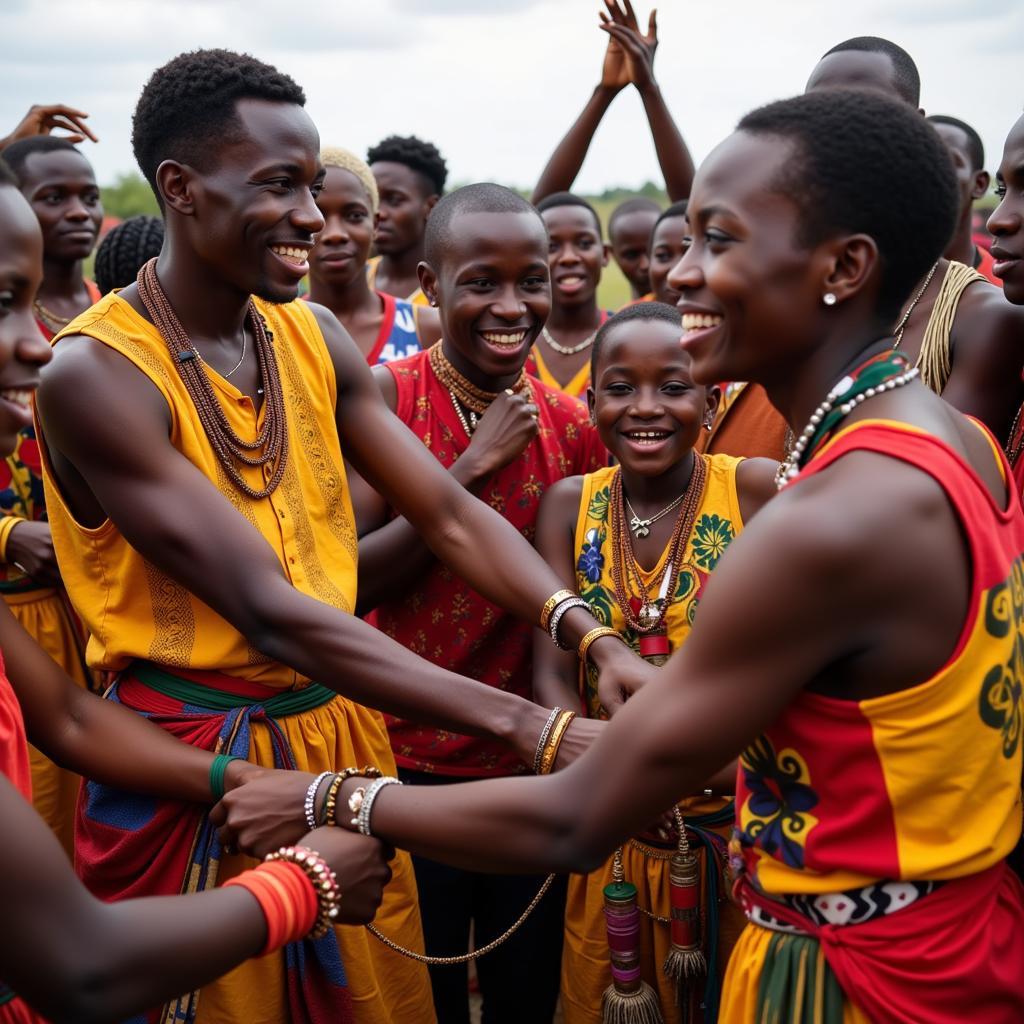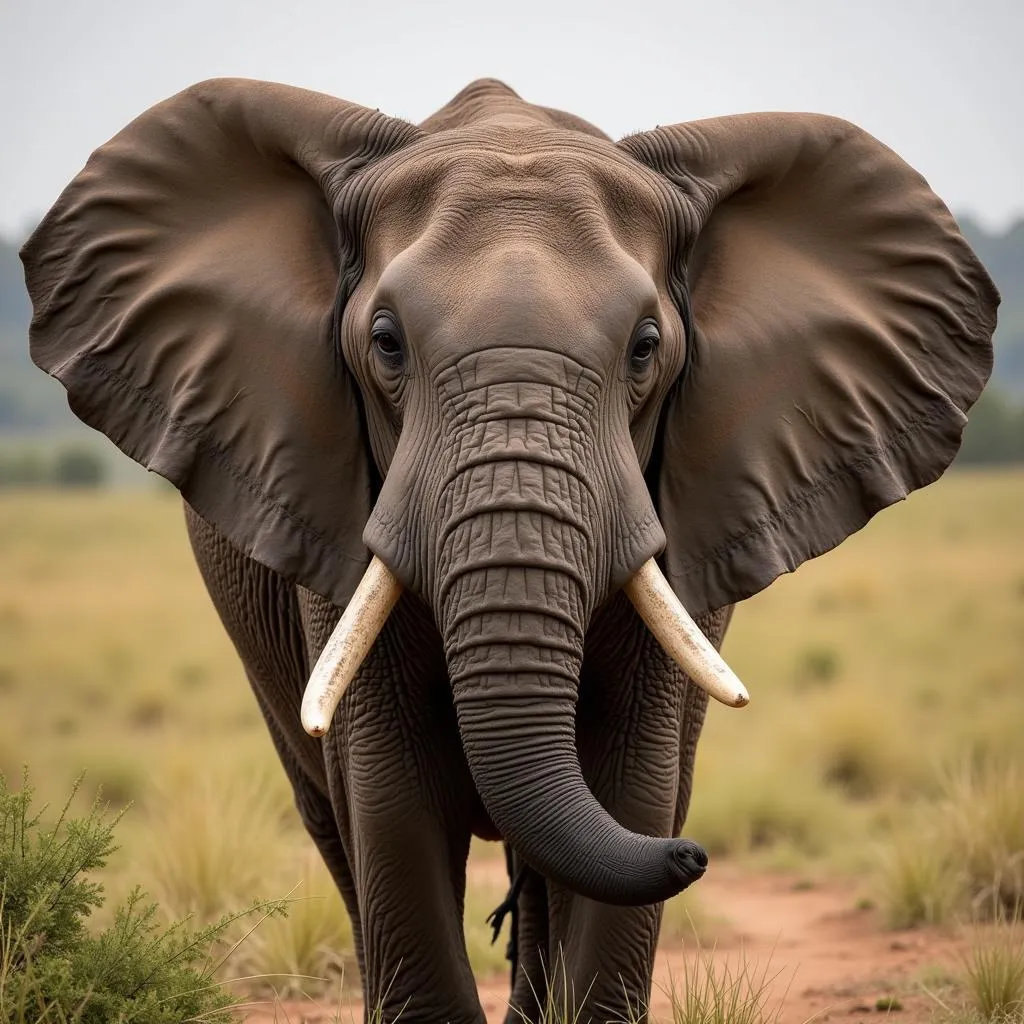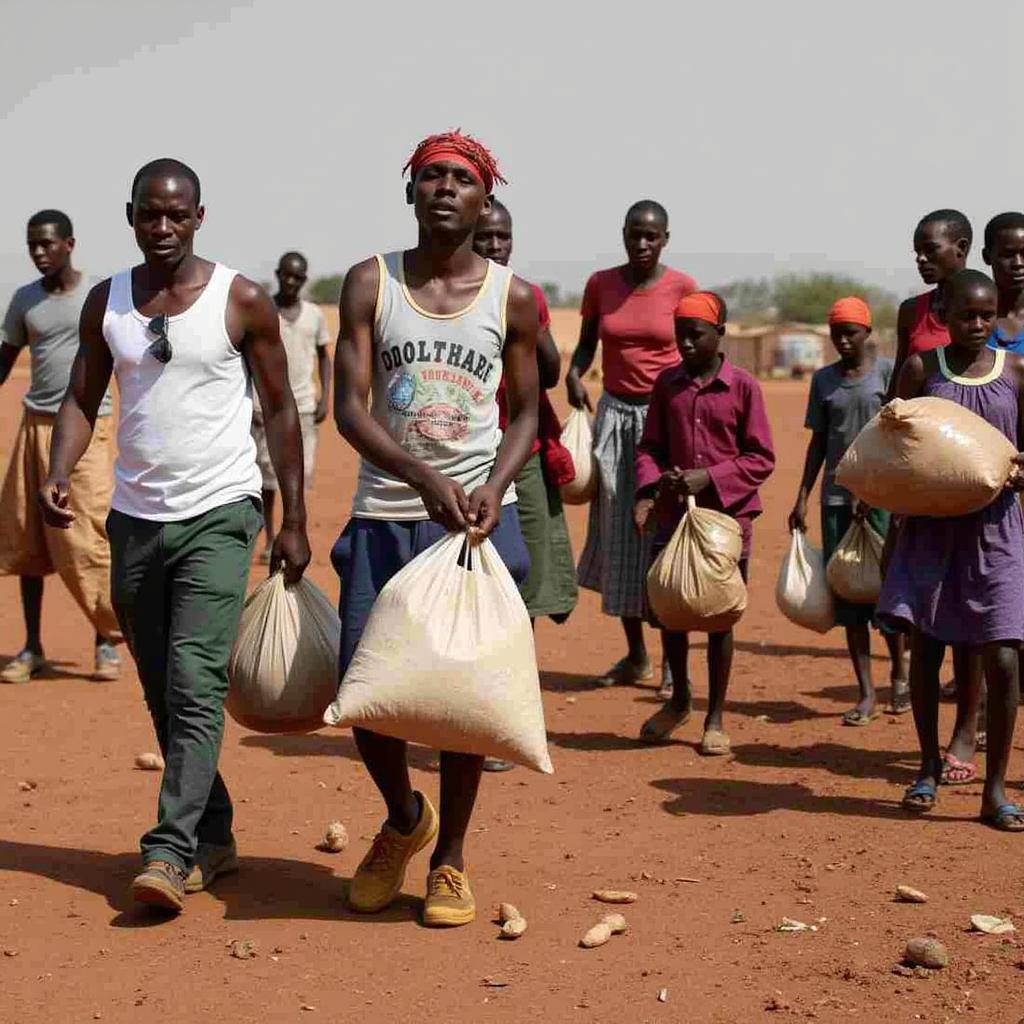African Ethics and Morality: A Rich Tapestry of Values
African Ethics And Morality are not monolithic; they are a complex and diverse tapestry woven from the threads of numerous cultures, traditions, and philosophies across the continent. Understanding this rich tapestry requires moving beyond simplistic generalizations and delving into the specificities of various communities. This exploration illuminates the profound influence of communal values, respect for elders, spiritual beliefs, and the interconnectedness of life on shaping ethical frameworks.
Exploring the Core of African Ethics and Morality
What are the fundamental principles that underpin African ethics and morality? One key aspect is the emphasis on Ubuntu, a Nguni Bantu term often translated as “humanity” or “I am because we are.” Ubuntu highlights the interconnectedness of individuals within a community, emphasizing compassion, respect, and shared responsibility. Another crucial element is the reverence for ancestors and elders, who are seen as repositories of wisdom and guidance. Their counsel and blessings are sought on important matters, ensuring continuity between generations. Furthermore, spiritual beliefs play a significant role, with many African communities recognizing a supreme being and a pantheon of spirits that influence human life. These beliefs permeate everyday life, informing moral decisions and shaping social interactions.
You can find more resources on this topic by exploring traditional African folktales.
Many ethical dilemmas are addressed through storytelling and proverbs, passing down moral lessons through generations. These narratives often highlight the importance of honesty, integrity, and community well-being. For example, a common theme is the triumph of good over evil, reinforcing the value of righteous conduct. The stories also provide guidance on resolving conflicts peacefully, emphasizing dialogue and reconciliation over confrontation. This focus on community harmony is a recurring theme in African ethics and morality, highlighting the importance of social cohesion and mutual support.
 African Community Gathering Embracing Ubuntu
African Community Gathering Embracing Ubuntu
The Role of Community in Shaping Moral Values
The concept of community plays a pivotal role in African ethical frameworks. Unlike individualistic societies, many African cultures prioritize the collective good over individual desires. This communal orientation fosters a strong sense of belonging and shared responsibility. Individuals are expected to contribute to the well-being of their community, upholding its values and traditions. This emphasis on collective responsibility extends to environmental stewardship, with many communities recognizing the importance of preserving natural resources for future generations.
african folktales tradition offer invaluable insights into the ethical fabric of African societies.
How do African communities handle moral transgressions?
When moral transgressions occur, the focus is often on restoring harmony within the community rather than solely punishing the individual. Reconciliation and restorative justice are prioritized, aiming to repair the damaged relationships and reintegrate the offender back into the community. This approach emphasizes understanding the root causes of the transgression and fostering empathy for all involved. It also recognizes that punishment alone may not address the underlying issues that contributed to the offense.
Modern Challenges and the Evolution of African Ethics
While traditional values remain deeply ingrained, African ethics and morality are not static. They continue to evolve in response to modern challenges such as globalization, urbanization, and technological advancements. These changes have brought about new ethical dilemmas and complexities, prompting ongoing discussions and adaptations within African societies. For instance, the increasing access to information through the internet has raised questions about cultural preservation and the influence of external values.
 African Ethics Navigating Modern Challenges
African Ethics Navigating Modern Challenges
“Balancing tradition with modernity is a key challenge facing African societies today. It requires careful consideration of how to preserve core values while adapting to the changing world,” says Dr. Adeola Oladipo, a renowned scholar of African philosophy at the University of Lagos.
How does globalization impact African ethical values?
Globalization presents both opportunities and challenges for African ethics. On one hand, it fosters intercultural dialogue and exchange, enriching ethical perspectives. On the other hand, it can lead to the erosion of traditional values and the adoption of potentially harmful practices. Navigating this complex landscape requires critical engagement with global trends while remaining rooted in African ethical principles.
You can learn more about institutions dedicated to African scholarship by checking out resources on african christian university.
Conclusion: Appreciating the Depth and Complexity of African Ethics and Morality
African ethics and morality are far more nuanced than often portrayed. They represent a dynamic and evolving set of values that prioritize community, respect for elders, and spiritual interconnectedness. Understanding these principles provides valuable insights into the rich cultural heritage of the continent and offers alternative perspectives on ethical decision-making. As we continue to grapple with complex global challenges, learning from African ethical frameworks can contribute to building a more just and harmonious world. Further exploration of this fascinating topic can be found through resources like african ethics and morality pdf.
FAQ
-
What is Ubuntu?
Ubuntu is a Nguni Bantu term that emphasizes interconnectedness and shared humanity. -
How do African communities resolve conflicts?
They often prioritize reconciliation and restorative justice. -
What role do elders play in African ethics?
Elders are revered as sources of wisdom and guidance. -
How is globalization impacting African ethics?
It presents both opportunities and challenges, prompting ongoing adaptation.
When you need assistance, please contact us via Phone: +255768904061, Email: kaka.mag@gmail.com Or visit our address: Mbarali DC Mawindi, Kangaga, Tanzania. We have a 24/7 customer service team.

